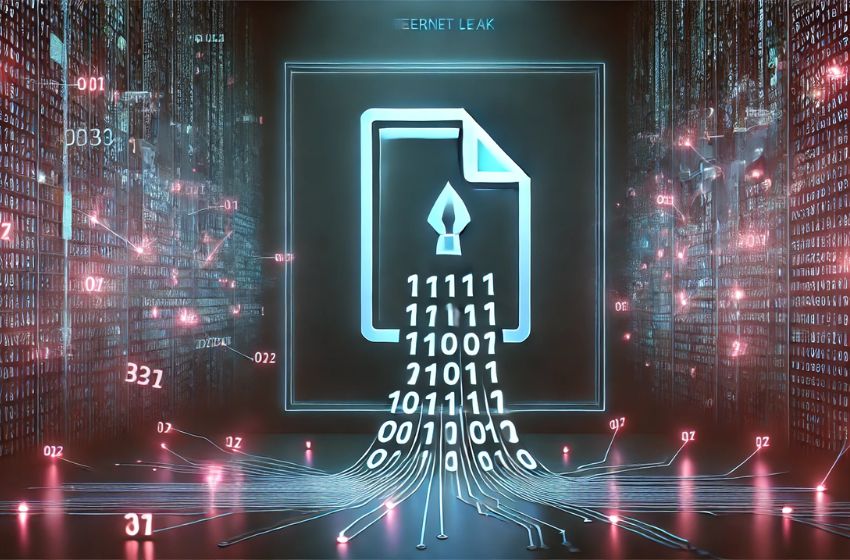Wisto Journal brings you an in-depth exploration of the modern phenomenon “internet leak,” an issue plaguing individuals, corporations, and governments alike. In this digital age, where privacy and security are often at odds with accessibility, understanding what “internet leak” entails is crucial. Let’s delve into its origins, implications, and solutions.
What is an Internet Leak?
An “internet leak” refers to the unintentional or unauthorized release of sensitive, confidential, or private data onto the internet. This can include personal information, corporate trade secrets, government documents, or multimedia files. Unlike deliberate hacks, internet leaks often stem from negligence, system vulnerabilities, or insider actions.
The phenomenon has grown significantly in the past decade due to the rapid digitization of information and the global reliance on online platforms.
Common Causes of Internet Leaks
Understanding the root causes of “internet leak” is essential for effective prevention. Below are some primary contributors:
1. Human Error
Accidental uploads, misconfigured cloud settings, or sharing files with the wrong audience are common reasons behind internet leaks. For instance, a small mistake like granting public access to a private folder can expose critical data to the world.
2. Weak Security Protocols
Many organizations fail to implement robust cybersecurity measures, leaving their systems vulnerable. Outdated software, lack of encryption, and insufficient firewalls can lead to internet leaks.
3. Insider Threats
Employees or contractors with access to sensitive data may unintentionally or maliciously leak information. Insider threats are challenging to detect and often result in significant damage.
4. Cyberattacks
While not always the same as hacking, vulnerabilities exploited by cybercriminals can unintentionally lead to internet leaks. For example, exploiting a system flaw can expose vast amounts of data.
5. Third-Party Integrations
Partnering with third-party service providers without proper due diligence can lead to unintended leaks. If a third-party system is compromised, it could expose your data as well.
Types of Internet Leaks
1. Personal Information Leaks
These leaks involve personal identifiable information (PII) such as names, addresses, social security numbers, and medical records. Data breaches from social media platforms and e-commerce websites are common sources.
2. Corporate Data Leaks
Sensitive business information, including financial records, client data, and trade secrets, can be exposed, leading to reputational and financial harm.
3. Government and Political Leaks
Government documents and classified information are occasionally leaked online, stirring political scandals or compromising national security.
4. Multimedia Leaks
Unreleased films, songs, or private videos can be distributed without authorization, causing significant losses for creators and industries.
Implications of an Internet Leak
The impact of an internet leak can range from minor inconveniences to life-altering consequences. Below are some key repercussions:
1. Loss of Privacy
When personal data is leaked, it can lead to identity theft, stalking, or harassment. The psychological toll of such incidents is often severe.
2. Financial Losses
For corporations, internet leaks can result in significant financial losses due to lawsuits, regulatory penalties, and lost business opportunities.
3. Reputational Damage
Once private data is exposed online, the trustworthiness of an individual or organization can take a hit, making recovery difficult.
4. National Security Threats
Leaks involving government data can jeopardize national security, diplomatic relations, and public safety.
Real-Life Examples of Internet Leaks
1. The Edward Snowden Revelations
In 2013, Edward Snowden leaked classified NSA documents, exposing the agency’s surveillance programs. This incident highlighted the balance between security and privacy.
2. Celebrity Photo Scandals
Private photos of celebrities have been leaked online, sparking debates on privacy rights and cybersecurity.
3. Corporate Data Breaches
Companies like Equifax and Yahoo have suffered massive data leaks, exposing millions of users’ personal information.
How to Prevent Internet Leaks
Mitigating the risk of an internet leak requires proactive measures:
1. Enhance Security Protocols
Adopt multi-factor authentication, encryption, and regular software updates to secure your systems.
2. Train Employees
Educate staff about cybersecurity best practices to minimize human error and insider threats.
3. Monitor Systems
Use intrusion detection systems and real-time monitoring to identify vulnerabilities before they are exploited.
4. Restrict Access
Limit access to sensitive data based on roles and responsibilities to reduce exposure.
5. Regular Audits
Conduct routine audits of systems, permissions, and data-sharing practices to identify potential risks.
Future of Internet Leaks: Emerging Trends
As technology advances, the nature of internet leaks evolves. Here are some anticipated trends:
1. AI-Powered Leaks
Artificial Intelligence tools may be used to exploit vulnerabilities faster than ever before.
2. Blockchain Solutions
Decentralized systems like blockchain could offer more secure ways to store and share data.
3. Increased Legislation
Governments worldwide are enacting stricter data protection laws, such as the GDPR, to minimize the risk of leaks.
Conclusion
The “internet leak” phenomenon is a pressing issue in our interconnected world. From personal data breaches to corporate espionage, the consequences can be far-reaching. Wisto Journal encourages readers to prioritize cybersecurity and remain vigilant in this ever-evolving digital landscape.



